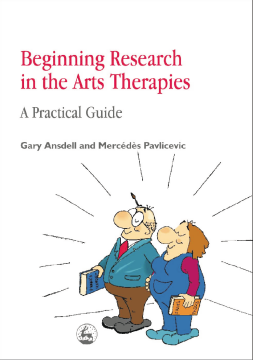
Additional Information
Book Details
Abstract
* Are you about to write a dissertation for an MA in an arts therapy?
* Is your workplace pressuring you to do research on your practice?
* Do you fancy trying your hand at a bit of research without any pressure from anyone?
* Are you bewitched, bothered and bewildered?
A mystique about research usually comes from reading a) writers who launch into philosophical dialectics about research and avoid the basics; b) poorly written research papers full of undecipherable formulae; and c) smug, unfriendly research texts.
This book begins at the beginning. Ansdell and Pavlicevic hold your hand and give you plenty of hints and tips while you prepare your funding proposal or research project. They help you think about your title, structure your research questions and aims, and prepare to collect, organize and analyze your research data. Moreover, you're not alone! Franz and Suzie have their own projects which you're invited to follow with opportunities to learn about the nitty-gritty of tables, pie-charts, data transcription, data presentation - and supervisors who toss off clever, useless bits of advice.
`Beginning Research in the Arts Therapies' puts the zap into arts therapies research, making it fun and serious, exasperating and utterly absorbing. Miss this book and you'll deprive yourself of a sympathetic ear, firm advice and a sensible and imaginative combustion of theory, debate and determination. `Beginning Research in the Arts Therapies' is recommended to all arts therapies practitioners: students, researchers, and those clinicians who simply want to `keep up' with research literature without `doing it for themselves'.
Gary Ansdell is Research Associate at the Nordoff-Robbins Music Therapy Centre in London where he currently teaches the Master of Music Therapy Programme. He is the Editor of the British Journal of Music Therapy and former Research Fellow at City University, London. Mercedes Pavlicevic was Research Associate at the Nordoff-Robbins Music Therapy Centre where she taught the Master of Music Therapy Programme. She was former Post-Doctoral Fellow, and was the Co-Director of the Master's Music Therapy Programme at the University of Pretoria, South Africa. Both are committed researchers, enthusiastic writers and spirited teachers.
This research text is the best and most comprehensive one for arts therapists that I have come across so far. I have no hesitation about recommending it to novice researchers in the arts therapies and those who instruct them. It is a volume that supplies much of what arts therapists of any nationality need to know about scholarly inquiry - and does so in a most palatable manner.
The Arts in Psychotherapy
